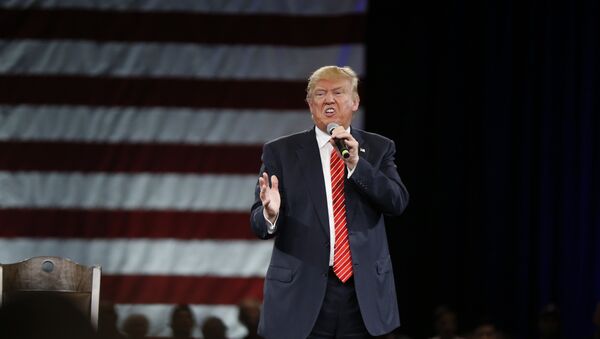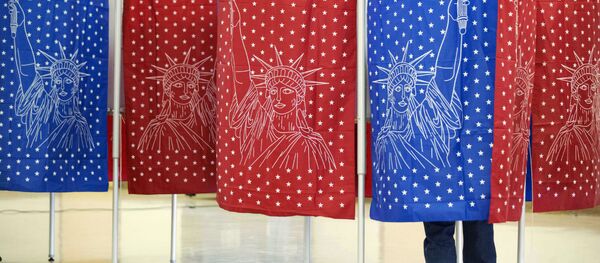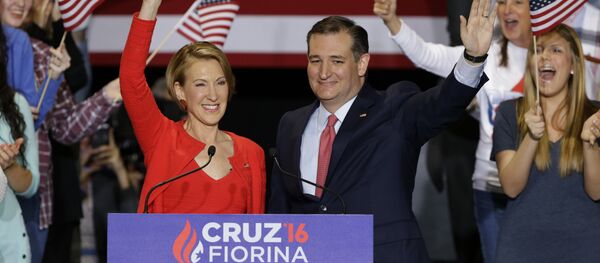WASHINGTON (Sputnik) — Trump needs 1,237 pledged delegates won in primaries and caucuses around the United States to clinch the Republican presidential nomination on the first ballot at the party’s national convention in Cleveland in July. After his Tuesday victories, he now has 987 delegates.
"Yeah, it looks like Trump is unstoppable by this point. [Democratic Party frontrunner] Hillary Clinton looks pretty unstoppable as well," US political analyst and author Dan Lazare said on Wednesday.
Clinton and Trump both alienated many voters based on their patterns of behavior and political records, Lazare acknowledged.
"The race is going to be between a centrist with pronounced neoconservative leanings [Clinton] and a Bonapartist strongman who may well outflank her on the left [Trump]."
Trump was far more likely to be the candidate favoring peace and restored relations with Russia while Clinton had a clear record of favoring the aggressive use of military force in Afghanistan, Syria and Iraq as well as confrontation with Russia, Lazare warned.
"Clinton is a war candidate while Trump at least holds out the possibility of a rapprochement with Putin, which is better than nothing."
"In either event, the prospects for US democracy are grim. America has the most dysfunctional political system in the West. Congress and the Supreme Court are both gridlocked. Constitutional reform is long overdue. I think US politics are likely to grow more unstable rather than less."
Matthew Dal Santo, an Australian historian at the University of Copenhagen, agreed that Trump’s drive to the nomination now appeared unstoppable after his five victories in Tuesday’s primaries.
"It's hard for me to see how the GOP [Republican Party] will find a way to deny Trump the nomination at this stage."
The Republican Party would lose all its remaining pretensions to be genuinely democratic if it denied its own supporters clearly expressed preference for Trump over the other two remaining candidates, Ohio Governor John Kasich and US Senator Ted Cruz, Dal Santo explained.
"It would seem pretty clear that the people have spoken — and they have continued to do so — in Trump's favor even after the party bigwigs had made it crystal clear to them that they were voting for the 'wrong' candidate."
Dal Santo said the long drawn out, almost five-month primary campaign stating in at the beginning of February and continuing into June contrasted unfavorably with countries like the United Kingdom or Canada, which had much shorter general election campaigns to elect parliaments.
"Personally, I view the entire mind-boggling process and its stupendous expense as a quadrennial endorsement of the Westminster system [in the United Kingdom]."




